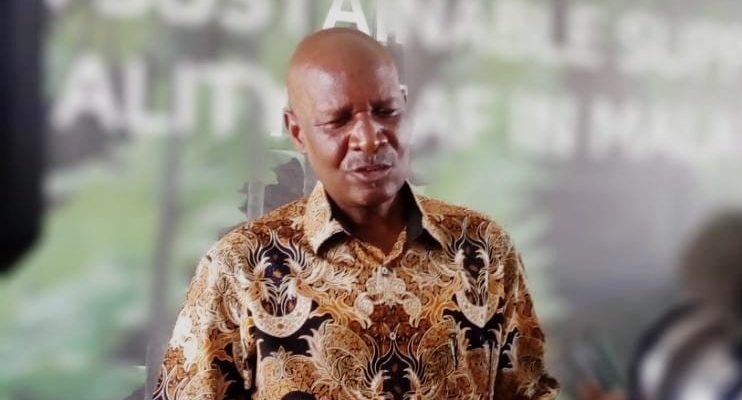
Minister of Agriculture Lobin Lowe says Malawi will continue to rely on tobacco in the long term and he has urged tobacco buyers and other stakeholders to ensure that farmers do not lose interest in the crop.
Lowe made the remarks on Monday after touring Japan Tobacco International (JTI) Leaf Malawi factory in Kanengo Lilongwe where the company has invested about US$1 million in maintaining the factory.
Lowe said the it is pleasing that companies consider Malawi as the main processing countries and the investment is evidence that tobacco has a bright future in Malawi.
“If we talk of other crops, we are talking of complementing tobacco and not getting away from tobacco. This alone shows that we are still relying on tobacco in the short, medium and long term,” said Lowe.
He, however, said the ministry has observed that farmers are not getting much take-home money after selling tobacco considering they use the proceeds to pay back for the inputs they got from tobacco companies. He also complained that the ministry did not get enough forex from tobacco sales.
He added that contract farming was supposed to be the best but unfortunately companies in Malawi dictate on prices and farmers do not benefit.

“Malawi is producing a lot of burley globally but the prices are not conducive. Last season alone, we saw soya farmers enjoying compared to tobacco farmers so, if we are not careful, a lot of farmers will shift to legumes.
“What we will do is sit down with the buyers, processors and tobacco commission to make sure that farmers are attracted to tobacco,” said Lowe.
He further said that the ministry is also looking forward to bringing the Tobacco Industry Act for review before Parliament in November.
“We want to assure you and other industry stakeholders that the review of the Act will follow a consultative process with all stakeholders and the process shall be transparent, efficient and effective to ensure that all interests are taken into consideration,” he said.
On his part, JTI Managing Director John Gauna called on government to remove non-value costs such as MBS tax and the Tobacco Commission levy on processing of the leaf in order to make Malawi’s processing facilities financially appealing.
Gauna said that a number of tobacco processing factories have closed down in the neighbouring countries and this has created an opportunity for Malawi to position itself as a competitive alternative.
Gauna noted that taxes and levies in commodity processing are making the country unattractive.
“We boast capacity to process up to 240 million kilograms of tobacco leaf here in Malawi. But at the moment we aren’t achieving anywhere near this,” said Gauna.
He gave an example of the JTI factory which can process up to 50 million kilograms of leaf but is currently processing around 40 million kilograms, up from 28 million last year.
He said the company was massively underutilizing its facility despite processing tobacco for other parties.
“Non-value costs such as MBS Cess and the TC levy make our processing facilities less financially appealing. The knock-on effect on this is fewer jobs,” he said.














